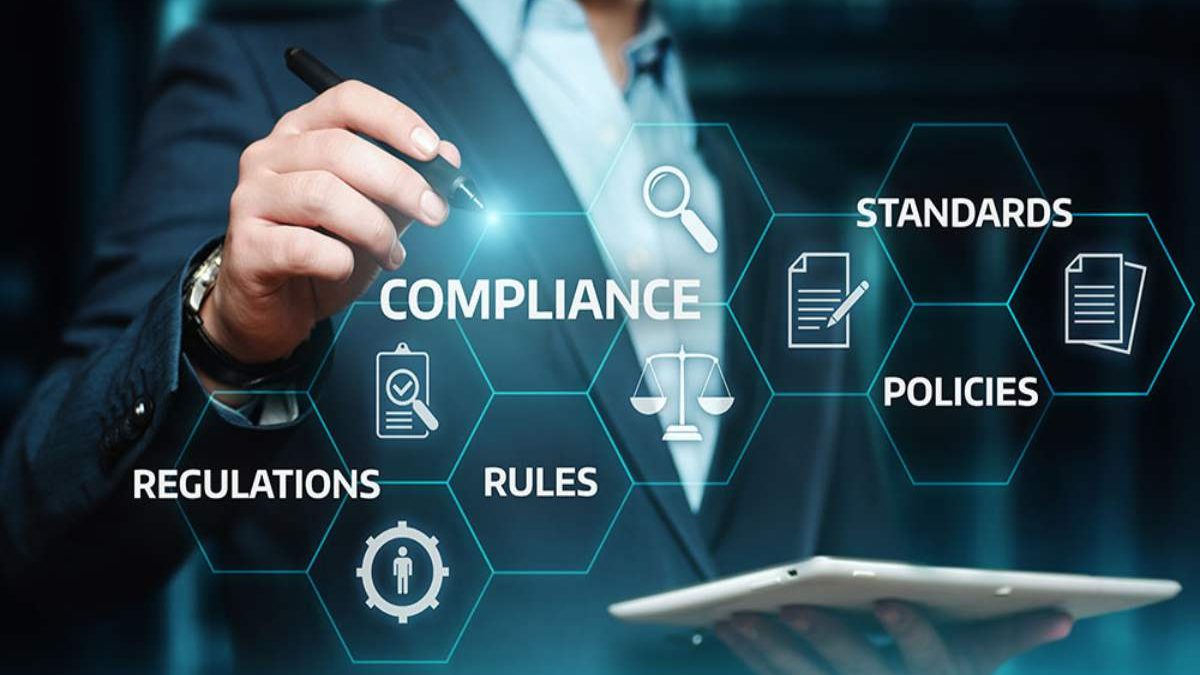Table of Contents
What is Regulatory Compliance?
Regulatory compliance or compliance is a practice that helps organizations comply with all the rules and laws of the country. In this way, fines or other sanctions by the government are avoided.
Companies that implement this practice make it clear that they intend to abide by the rules, policies, or laws, including those that are not mandatory or part of the company.
The size of the compliance department depends on the size of the company. In addition, compliance has brought a new profession known as the compliance officer. And in some companies, entire departments are even created around this issue.
Functions of the Compliance Officer

What are the functions of the compliance officer or the compliance department?
Mainly there are 3:
Prevent: Prevent accidents from occurring or non-compliance with rules in the organization. Employees are also trained at this stage, and awareness is raise about the importance of regulatory compliance.
Identify All possible risks that may cause non-compliance with regulations or laws are sought. In addition, all the deficiencies and the points to improve is identifying.
Inform: Inform senior management about the risks for non-compliance with the rules. Measures to control each risk and strengthen preventive controls are also communicate.
Continuous improvement: Repeat the above process periodically.
The Objective of the Compliance Officer is to Ensure that the Company Complies With:
- The laws and regulations of the country.
- The internal policies of the company.
- Ethical codes or good practices.
Agreements with third parties, such as suppliers or contractors.
The biggest challenge for the compliance officer or the regulatory compliance department is to put all the measures into practice and ensure they are perfectly follow 365 days a year.
International Standards
International standards are not mandatory, but that can be met in any country and give a company a certification that makes it more competitive. An example is the ISO standards, the most common international standards.
Regulatory compliance also helps you comply with these standards, and there is even a specialized ISO standard on this subject. It’s ISO 19006. This international standard talks about how compliance and risk need to be on the same level and that they just have a few differences.
So, for example, if your company seeks to be certified in one of the most famous ISOs (9001, 14001 or 45001), opting for regulatory compliance is quite logical and will help you achieve your goals.
Benefits of Regulatory Compliance
These are some of the benefits of implementing regulatory compliance in your company:
- Helps to avoid sanctions and fines by government parties.
- Allows you to provide your workers with a better work area (complying with STPS standards ).
- It facilitates the certification of international standards, which generally require a lot of effort to be implement.
- Improve the quality of your products or services.
- Increase the reputation of your company with your clients and your potential candidates.
It is regulatory compliance or compliance, its functions and the benefits of carrying it out in your organization. It is a handy system that helps you have a respected and committed company with the regulations.
Importance of Regulatory Compliance
Regulatory compliance acquired particular importance with the reform of the Criminal Code, which led to the appearance of a new legal liability: the criminal liability of legal persons. Legal persons come to have a responsibility that implies prison sentences for the crimes committed by their legal representatives and administrators in their name or on their behalf. But also by those who, being subject to their authority, have been able to carry out the acts due to not paying attention to them or not exercising enough control over them.
Consequently, the figure of the Compliance Officer is beginning to take on great relevance so that they are in charge of everything related to legal compliance and introduce the company’s regulatory culture.
COMPLIANCE OFFICER
The Compliance Officer is the highest representative of regulatory compliance in a company. He is in charge of managing and supervising compliance with legal and ethical regulations in organizations. They perform work that is closely related to and based on the Compliance Management System (CMS).
The Figure of the Compliance Officer Performs the Following Functions in Companies:
Provide training to the company: One of the essential tasks of the compliance officer is to train employees in legal and legal matters to know everything related to compliance with legal regulations, which is generally one of the unknown areas. This will allow employees not to incur possible legal crimes and to know the applicable laws For employees.
Verify the documentation: It will try to apply ethics in decision-making and the execution of actions. It is necessary that, whenever possible, everything regarding decision-making and the protocols that were carri out is document. The Compliance Officer will be responsible for analyzing this type of documentation.
Provide support for the solution of possible problems: It will offer support to the different departments for the resolution of issues and will contribute to their management objectively and efficiently.
Conclusion
It is vital for organizations that, in addition to setting and achieving the objectives they establish, pay attention to their duty to comply with a series of legal issues or requirements. Not only must legal regulations be considered, but attention must also be paid and internal policies must be included in the regulatory framework, the commitments that the company assumes with customers or suppliers and, above all, the ethical codes that the company establishes. Within the regulatory framework to which companies are expose, there are two procedures or areas that can be voluntary and depend on the company (ethical code) or be mandatory (external requirement).

